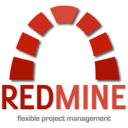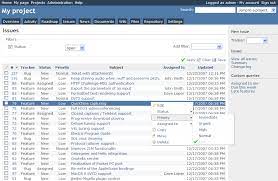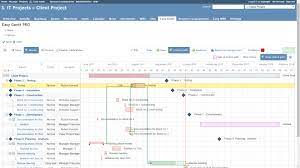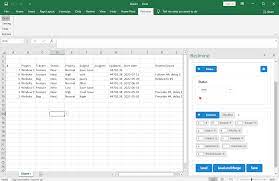ProjectLibre stands out as a powerful, free, and open-source project management software designed to simplify the planning, tracking, and control of projects. This versatile tool empowers users to create tasks, allocate resources, set deadlines, and monitor progress through visual aids such as Gantt charts and network diagrams.

Redmine upholds multiple projects, roles, and customer permissions, building it appropriately for both small and large teams. It further integrates with miscellaneous version control systems, like Git and Subversion, enabling developers to link commits to issues and path their growth.
- Issue tracking: Redmine authorizes teams to form and path issues, bugs, and feature requests. Issues may be assigned to team members, prioritized, and traced through their lifecycle.
- Time pursuing: Redmine has an included time tracking feature that grants team members to log time spent on every issue or project. This eases teams to estimate project costs and plan resources efficiently.
- Project wiki: Redmine determines a wiki for each project, approving teams to collaborate on project documentation and knowledge sharing.
- Gantt charts: Redmine has a Gantt chart feature that approves teams to visualize project timelines and dependencies.
- Custom fields and workflows: Redmine is well customizable, granting teams to form custom fields and workflows to match their distinguishing project requirements.
- Jira: Jira is a common project management tool particularly widely used by software development teams. It presents a range of features, containing issue tracking, project management, agile boards, and workflows.
- Trello: Trello is an elementary project management tool that consumes Kanban boards to control projects. It is well-known among small teams and proposes elemental features like task management, checklists, and team collaboration.
- Asana: Asana is a standard project management tool that suggests a range of features, containing task management, team collaboration, project tracking, and reporting. It is a reliable choice for small and medium-sized teams.
- Basecamp: Basecamp is a natural and smooth-to-use project management tool that allows features like task management, team collaboration, and file sharing. It is a useful choice for small teams and remote workers.
- GitHub: GitHub is a well-known code hosting platform that presents features like issue tracking, version control, and project management. It is a useful choice for software development teams that use Git for version control.
Redmine is an inclusive project management platform created to help teams plan, execute, and track their projects efficiently. With features like task management, Gantt charts, resource allocation, and reporting tools, Redmine can ease teams’ stay coordinated, communicate efficiently, and give successful projects on time and inside budget.
Redmine for project tracking
Redmine proposes project progress tracking features that assign teams to supervise the status of each task in real time. With progress revises, status reports, and customizable dashboards, teams can conveniently path their project’s progress and form data-compelled conclusions to ensure on-time and within-budget project delivery.
Redmine for team collaboration
Redmine presents strong team collaboration features, containing communication tools, file sharing, and team member assignments. With these features, teams can smoothly collaborate, share information, and stay in sync, helping to guarantee that projects are deposited successfully.
Redmine for issue tracking
Redmine is an effective issue-tracking tool that assigns teams to path bugs, feature requests, and additional issues in a central location. It supplies a range of features like issue categorization, priority setting, issue assignment, time tracking, and issue resolution tracking. Redmine’s adaptable workflows and custom fields approve teams to fit it to their particular issue tracking requirements.
Redmine for task management
Redmine suggests inclusive task management features that assign teams to form, appoint, and control tasks. With the capability to include due dates, priorities, and custom fields, teams can efficiently establish their work and guarantee that tasks are finished on time and within budget.
Redmine for project scheduling
Redmine proposes strong project scheduling features, containing Gantt chart views, task management tools, and resource allocation efficiencies. With these features, teams can easily create and control project schedules, monitor improvement, and fix timelines as required to guarantee profitable project delivery.
Redmine for resource allocation
Redmine involves powerful resource allocation features that authorize teams to assign resources, containing people and equipment, to particular tasks and projects. This ensures that everybody has the essential resources to develop their work on time and within budget, helping teams deliver profitable projects.
Redmine for project progress tracking
Redmine proposes project progress tracking features that assign teams to supervise the status of each task in real time. With progress revises, status reports, and customizable dashboards, teams can conveniently path their project’s progress and form data-compelled conclusions to ensure on-time and within-budget project delivery.
Redmine for project planning and visualization
Redmine presents inclusive project plan and visualization features, containing Gantt charts, task management tools, and resource allocation proficiencies. With these features, teams can efficiently form and control project schedules, monitor development, and adjust timelines as required to guarantee profitable project delivery.
Redmine for project team management
Redmine supplies project team management features to ease teams’ control of their team members efficiently. Teams can allot tasks, path workload, and control team member availability. This assists to guarantee that everybody is functioning on the right tasks at the right time and that resources are allotted capably.

Redmine stands out as a robust web-based project management tool designed to empower teams in efficiently tracking and controlling their projects. It offers a comprehensive set of features, including issue tracking, time tracking, project wikis, calendars, and Gantt charts, providing teams with the tools they need for effective project management.
Redmine is a more inclusive project management tool that presents a range of features beyond code hosting and version control. It specifies issue tracking, time tracking, Gantt charts, project wikis, and more. It is well-customizable and can be tailored to fit the particular requirements of various projects and teams. Redmine is a reliable choice for organizations that require a centralized platform for directing all aspects of their projects, containing software development.
GitHub, in another way, is generally a code hosting and version control platform. It determines tools for directing code repositories, collaborating on code with team members, and tracking changes over time. It is specifically well-known among software development teams and open-source projects. GitHub’s focus on code management makes it a proper choice for institutions that prioritize code collaboration and version control.
Redmine vs Gitlab
- Code hosting: GitLab is generally a code hosting and version control platform, while Redmine supplies a more extensive range of project management features, containing issue tracking, time tracking, and Gantt charts.
- Collaboration: Both tools present collaboration features like code review, issue tracking, and team communication. However, GitLab has more progressive collaboration features like real-time chat and inline comments.
- Customizability: Redmine is well-customizable and may be tailored to fit the distinguishing requirements of various projects and teams. GitLab further proposes customization choices, but they are more restricted than Redmine’s.
- Pricing: Both tools allow free and paid versions, but GitLab’s paid plans are generally more high-priced than Redmine’s.
ProjectManager.com emerges as a dynamic web-based project management software, offering teams the tools they need to plan, track, and collaborate on projects in real-time. This versatile platform encompasses a range of features, including task management, resource allocation, team communication, time tracking, and reporting.
ProWorkflow stands out as a cloud-based project management software designed to streamline project workflows for teams and businesses. It provides a comprehensive set of tools, including task management, time tracking, collaboration, invoicing, and reporting, to help organizations stay organized and efficient.






